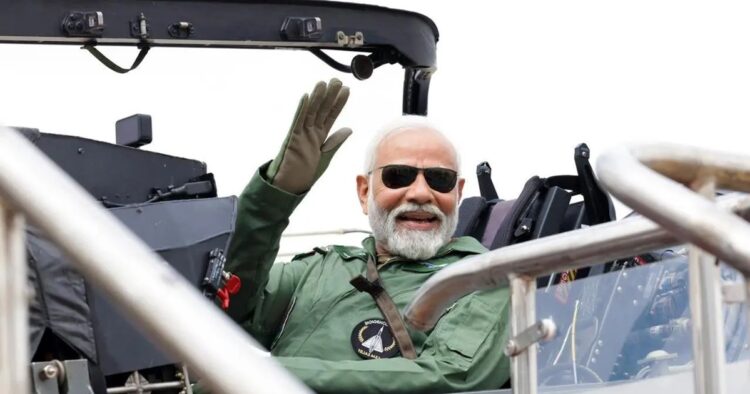The country’s defence industry has undergone rapid transformation since the onset of Prime Minister Narendra Modi’s tenure. The BJP is credited with laying down a vision for indigenous defence manufacturing in its 2014 manifesto. To achieve the goal of self-reliance in the defence sector, a series of bold decisions and policy reforms have been set in motion.
The Chief of Defence Staff
PM Modi surprised many during his second term by announcing the establishment of the post of Chief of Defence Staff (CDS), heralding the current military transformation. General Bipin Rawat, appointed as the first CDS in December 2019, led top-down defence reform initiatives and was the first to head the newly created Department of Military Affairs.
Military Diplomacy and Foreign Policy
PM Modi’s government has completed foundational agreements with the United States, enhancing US-Bharat military ties and engaging with like-minded partners, including Quad countries, in response to China’s assertiveness. This shift has empowered the Bharatiya military within Bharat’s larger foreign policy framework, signaling a departure from past hesitancy.
Propelling women’s participation in the armed forces
On December 4, 2023, Prime Minister Narendra Modi announced that the government was committed to increasing the strength of women in the armed forces. The PM said on the occasion of Navy Day, ‘Today, India is setting bigger targets for itself and is utilizing its full potential to achieve those targets’.
Decolonization Of The Indian Armed Forces
The Indian Army’s initiative to study ancient Sanskrit and Tamil texts from the 4th century BCE to the 8th century CE as part of its decolonizing efforts signifies a significant departure from conventional military doctrine. The aim is to rediscover Bharat’s rich heritage in statecraft, Warcraft, diplomacy, and grand strategy, with the intention of operationalizing these insights in the contemporary regional nuclear weapons environment.

















Comments